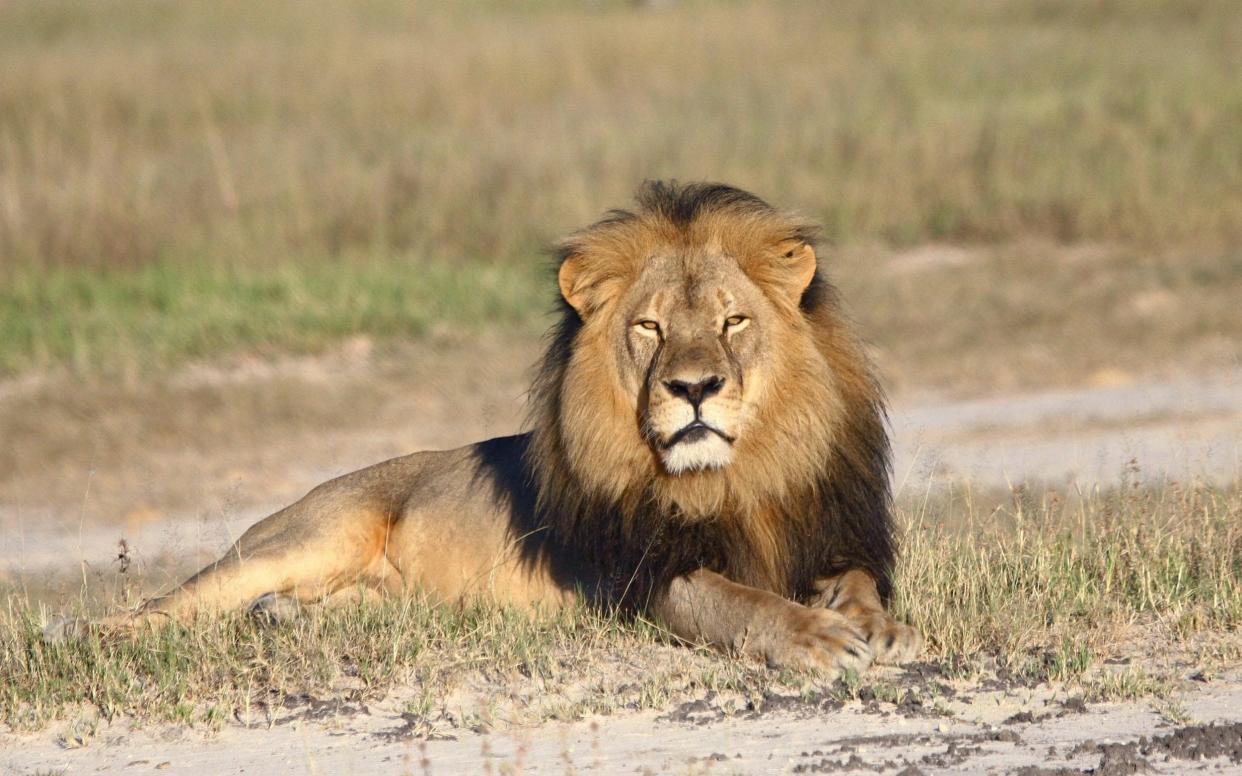Include lions in hunting trophy import ban or risk 'next Cecil', government told

The Government has been urged to ensure its hunting trophy ban includes lions or risk a British hunter being responsible for the “next Cecil”.
The Government has vowed to push on with a long-awaited ban on the import of animal parts as trophies from hunting expeditions, following a manifesto promise.
But there are fears that the narrow focus on “endangered” species in the pledge will exclude lions, which are classified only as “vulnerable” by the International Union for Conservation of Nature Red List.
This is despite lions being one of the primary targets for British trophy hunters, who have been accused of supporting the so-called canned lion industry in South Africa, in which animals bred in captivity are released into a fenced area to be hunted.
There are an estimated 20,000 lions left in the wild, perhaps as few as 13,000, down from 450,000 in the 1950s.
Some 5,060 wild and 4,970 canned lions were killed by trophy hunters between 2007 and 2017, according to the Campaign to Ban Trophy Hunting (CBTH), an average of three lions hunted every day.
Defra says it will publish the delayed results of a Government consultation to decide the extent of the ban "as soon as it is practical to do so".
“It's absolutely essential that lions are included in the ban. If they’re not, the Government will have capitulated to trophy hunters,” said John Read, an international emissary for the CBTH.
Calls for a ban have been renewed to coincide with the fifth anniversary of the killing by an American dentist of Cecil, a lion that was being tracked by scientists from Oxford University in Hwange National Park in Zimbabwe.
British hunters are believed to have killed more than 60 lions since his death in July 2015.
"If lions aren't included in the ban then there's nothing to stop British trophy hunters carrying on what they are doing, and killing the next Cecil,” Mr Read said.
A book written by the founder of CBTH, Eduardo Goncalves, earlier this year named several British businessmen who organise lion hunting trips. Supporters of the industry argue that it supports vital conservation work in southern Africa.
The Government originally promised to ban the import of lion trophies in 2015, but the law never materialised.
“British trophy hunters are able to get on a plane, go to Johannesburg and stay in a lovely ranch, and pay tens of thousands of dollars to kill lions,” Mr Read said.
He added: “If they don’t include lions this time, they will get absolutely no credit.”

